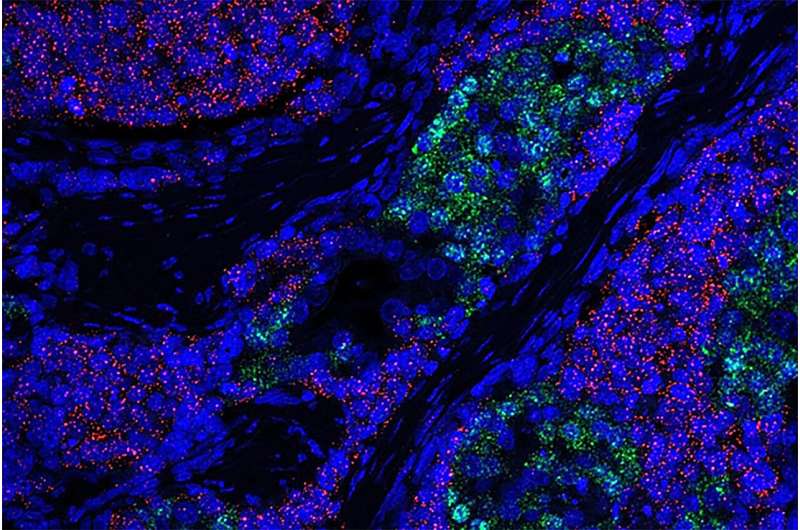This article has been reviewed according to Science X's editorial process and policies. Editors have highlighted the following attributes while ensuring the content's credibility:
fact-checked
peer-reviewed publication
trusted source
proofread
Researchers detail how prostate cancers grow more aggressively to evade treatment

As cancers grow and spread in the human body, they tend to become more aggressive over time, and this can accelerate during treatment as they develop resistance to drugs. In prostate cancers, some evolve into a rare, treatment-resistant tumor known as a small cell neuroendocrine, or SCN, cancer.
Now, for the first time, researchers have recorded and detailed the molecular steps that transform a more common type of prostate cancer into an SCN cancer. A better understanding of this tumor evolution could lead to new therapies to prevent SCN prostate cancers from developing.
"For the first time, we have a real opportunity to define the process that leads these very, very aggressive tumors," said Dr. Owen Witte, who co-led the new research with Thomas Graeber. Both researchers are members of the UCLA Eli and Edythe Broad Center of Regenerative Medicine and Stem Cell Research and Jonsson Comprehensive Cancer Center.
SCN cancers make up only a small percentage of all newly diagnosed prostate cancers, but are more common among tumors that continue to grow after treatment. In both cases, SCN prostate cancers are especially fast-growing and difficult to treat. While researchers have previously identified the molecular differences between more common prostate adenocarcinomas and SCN cancers, they haven't understood how those changes occurred.
"Until now, we didn't have a concrete timeline on how these small cell neurodendocrine cancers arose, so it has been very hard to design approaches to treat them in the clinic," Graeber said.
In the new study, published in Cancer Cell, the researchers used a model of prostate cancer in which healthy human prostate cells are implanted into a mouse and then coaxed or engineered to become adenocarcinomas and then SCN cancers.
"Starting with normal cells and following them all the way through this progression gave us a unique ability to track exactly what was happening at every time point," said Olga Chia-Chun Chen, a graduate student in the UCLA Broad Stem Cell Research Center Training Program and first author of the study.
Chen and her colleagues collected biopsies of the tumors every two weeks for at least 10 weeks and carried out detailed analyses of the genetic programs activated at each point. Despite the dozens of differences between prostate adenocarcinomas and SCN cancers, the team found that prostate adenocarcinomas followed just two predictable paths to evolve into SCN cancers. The researchers also showed that some lung cancers follow similar paths to progress into SCN cancers.
"It was a real surprise that there were just two major pathways," Graeber said. "And it gives us a lot of hope for therapeutics, because it's much easier to figure out how to block two paths than hundreds."
The researchers are planning future studies to develop methods to block these newly discovered evolutionary pathways. Several of the molecular changes they identified as critical for the evolution of an SCN cancer have the potential to be targeted with drugs. Rather than the difficult challenge of developing drugs to treat full-blown SCN prostate or lung cancers, the researchers hypothesize that drugs could instead block the progression of less aggressive subtypes so that SCN cancers cannot arise.
"The message here is that this is a reproducible process that cancers take to become more aggressive, and if we can predict that a cancer is headed down that road, maybe we can prevent it," Witte said.
More information: Chia-Chun Chen et al, Temporal evolution reveals bifurcated lineages in aggressive neuroendocrine small cell prostate cancer trans-differentiation, Cancer Cell (2023). DOI: 10.1016/j.ccell.2023.10.009




















